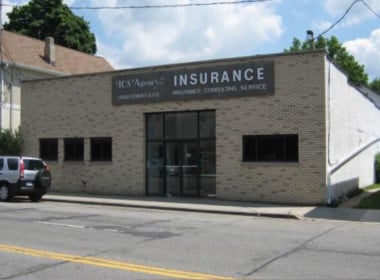Commercial Leasing Tips for Mixed-Use Properties
- March 09, 2016
- mixed use property, commercial real estate, Commercial Leasing
- 0

With the rise of mixed-use developments on Long Island, business owners should never think a commercial building is their only option. Today, many businesses are located in structures with multiple uses. If you are searching for available office space, our commercial leasing tips for mixed-use properties will make your job easier.
3 Types of Commercial Leases
When looking for a mixed-use property, one of the first questions to ask a prospective landlord is: what type of lease is offered? The types of commercial leases can differ in how they are structured.
1. Gross Lease
In commercial leasing, a gross lease is most commonly used in single and multi-tenant office buildings, industrial and some retail properties. A tenant’s rent is all-inclusive in gross leases. The landlord pays all or most expenses, including taxes, insurance, and maintenance from rent payments received from their tenants. Gross leases contain escalation clauses that allow for higher rents over time to offset rising costs.
2. Triple Net Lease
In a triple net lease, tenants agree to pay a significant share of the expenses of operation, taxes and insurance that relate to their rental unit. This fixes rents as well as landlord costs.
3. Modified Net Lease
A modified net lease allows landlords and tenants to structure lease terms that benefit both parties.
Evaluating Commercial Leasing Terms
As with any agreement, it pays to read the fine print in commercial leasing. There could be additional fees and expenses, such as maintenance fees and upkeep charges. For example, utility usage could be measured individually for each tenant or the costs could be divided amongst them.
One major difference between a commercial and a residential lease is that with commercial leases tenants are typically responsible for the repairs and maintenance of a property. A lease agreement should specify the terms and conditions of this arrangement.
Before committing to the terms of a lease, research your prospective landlord. See if anything negative is written about them online. It’s possible to check if the landlord has complaints from the Better Business Bureau, or if there were court judgements against them. It’s helpful to know as much as possible about your landlord before engaging in a long-term business relationship.
Finally, ask your landlord if he is willing to submit to a credit check.
Types of Mixed-Use Properties
A mixed-use property is any real estate that combines residential, commercial, industrial or institutional units. For example, a building with retail stores on its ground floor and offices on its second-floor would be considered mixed-use. Other types of mixed-use property include:
- Residential/commercial
- Office/residential
- Shopping mall conversion
- Studio/light industrial
- Hotel/residence
- Parking structure/retail stores
- Retail district retrofit
For more information, read our Commercial Real Estate Checklist for Leasing on Long Island.







